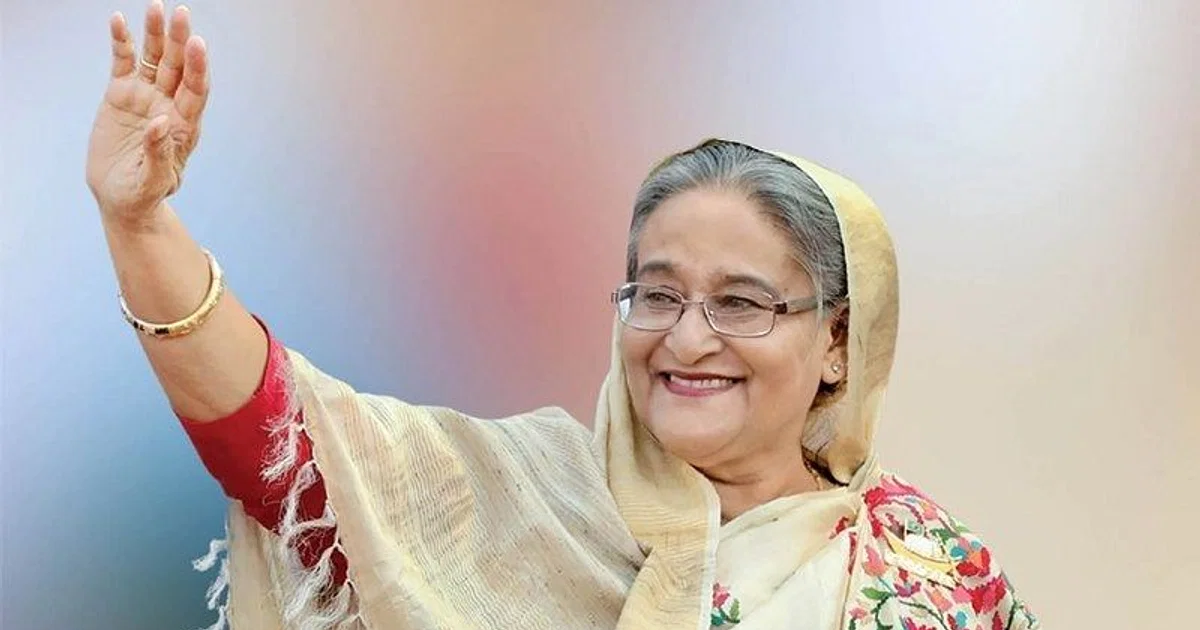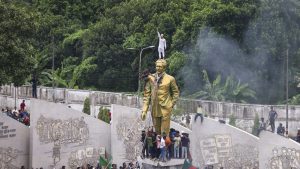Sheikh Hasina was forced to resign and flee the country earlier this week amid violent protests

Former Bangladeshi Prime Minister Sheikh Hasina, who was forced to resign and flee the country amid mass protests earlier this week, has accused the US of involvement in her ouster.
In a message on Sunday cited by the Economic Times, Hasina signaled that she could have retained power if she had agreed to host a US military base in Bangladesh.
“I resigned, so that I did not have to see the procession of dead bodies. They wanted to come to power over the dead bodies of students, but I did not allow it, I resigned from premiership,” Hasina was cited as saying.
“I could have remained in power if I had surrendered the sovereignty of Saint Martin Island and allowed America to hold sway over the Bay of Bengal. I beseech the people of my land, please do not be manipulated by radicals.”

Hasina was referring to Bangladesh’s coral reef island in the northeastern part of the Bay of Bengal and Washington’s alleged attempts to seize control over it.
A number of Bangladeshi officials claimed over the past months that the US had proposed leasing the island on several occasions, but was refused.
Hasina said that “white men” – her term for US officials – met with her before the previous election and sought her support in building an air base on Saint Martin.
The 76-year-old politician, who held office for 15 years, fled to neighboring India following her resignation on August 5.
She pledged to return to Dhaka “soon… with the grace of almighty Allah.”
Hasina’s ouster came after weeks of nationwide student-led demonstrations against a quota system for government jobs, which was criticized for favoring people with connections to the ruling party.
Starting off peacefully, the protests quickly turned violent, reportedly resulting in over 400 deaths and around 11,000 arrests.

READ MORE: India to monitor safety of Hindus in Bangladesh amid ongoing unrest
Shortly after Hasina resigned, the chief of army staff, General Waker-uz-Zaman, announced that he would form an interim government.
Muhammad Yunus, a Nobel Peace Prize winner known for pioneering the concepts of microcredit and microfinance, was sworn in as head of the interim government on August 8.
Published by Rt.com
Republished by The 21st Century
The views expressed in this article are solely those of the author and do not necessarily reflect the opinions of 21cir.com
